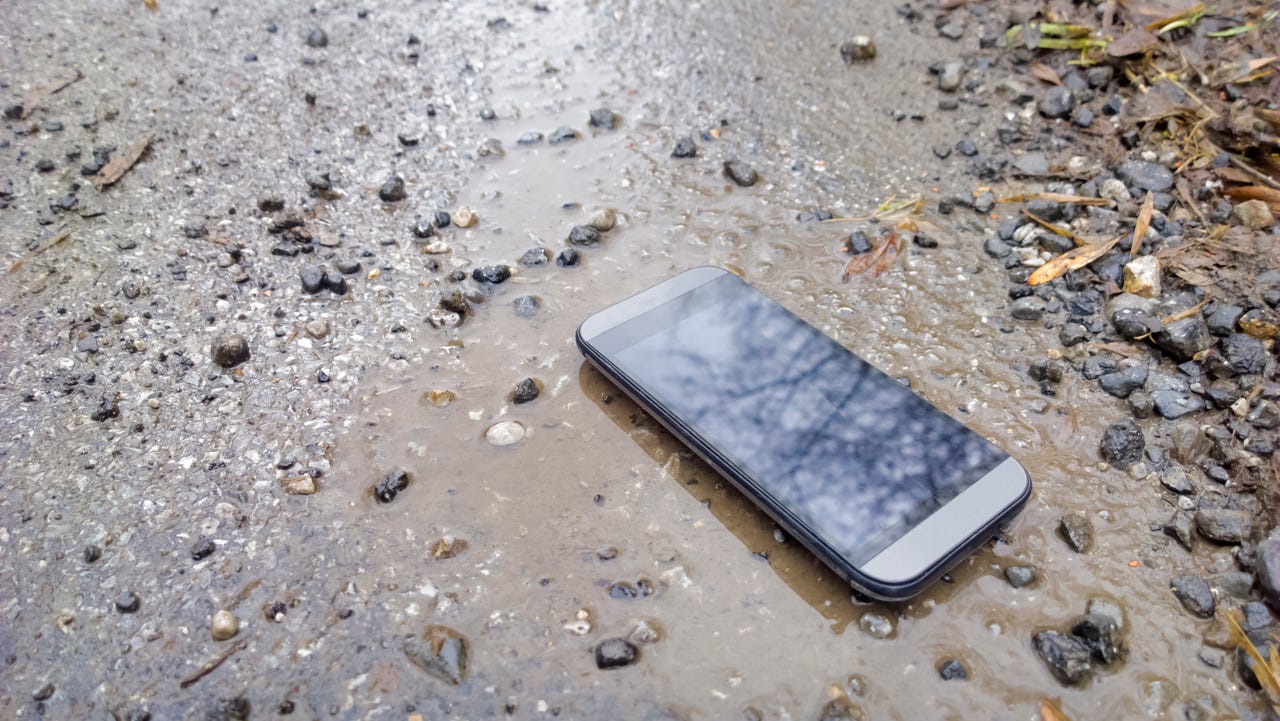
Getty Images/mikroman6
Have you ever lost your phone? When you did, was it ever located? If not, did it ever occur that someone with ill intentions could find that phone, break into it, and… well, you know the rest of that story. According to Identity Theft Awareness:
- About 12% of phone theft leads to fraudulent charges.
- 9% leads to identity theft.
- About 60% of smartphone theft victims file police reports.
- 10% of victims make no effort to recover their phones because they don’t know where to start looking.
- Victims of phone theft are likely to pay $500-$1000 to retrieve their personal data.
- 44% of thefts happen because the victim left their phone unattended in public.
- 14% of phones are stolen from burglaries.
- 11% of phones are stolen directly from the owner.
- Phones are more likely to be stolen in the middle of the day.
- Most popular locations for phone theft include restaurants, bars, nightclubs, workplaces, public transportation, and the street.
The only positive outcome would be if the person who found the phone returns it to you. I’ve actually had that happen (on the one and only occasion I lost my phone). I’m not saying that won’t happen but the reality is, you should plan accordingly.
One of the first things you can do for that is to enroll your phone in Google’s Find My Device feature. It’s free and the benefits you gain from it are seriously important.
Also: 5 quick tips for better Android security right now
As far as what you gain from the feature, the list is pretty short but very sweet. Once your phone is enrolled in Find My Device, you can:
- Send a sound to it — in case you know it’s in the building but you don’t know where.
- Lock your device and sign out of Google.
- Erase the device.
Once upon a time, you could also change the password for a device. But because of new features, such as biometrics, that is no longer possible. Even without that feature, the peace of mind you can get from issuing a factory reset to a lost phone is worth the few seconds of time you’ll spend enabling the feature.
Also: The best Android phones: ZDNET’s top picks
That’s right, it’s very simple. Let me show you how.
What is Find My Device and how to enable it for your Android phone
This will work on devices that are running Android 8.0 and up, so these steps should apply unless your phone is more than two yers old.
The first thing to do is to open the Settings app, which can be done by either swiping down twice for the Notification Shade and tapping the gear icon, or opening the Settings app from the App Drawer.
In the Settings app, you’ll see an entry for Security. Tap that entry.
The security option is easily accessible from within Settings.
Image: Jack Wallen/ZDNET
Within the Security page, you should see a listing for Find My Device. Tap that listing.
To enable the feature, you must tap Find My Device first.
Image: Jack Wallen/ZDNET
In the resulting page, tap the ON/OFF slider for Use Find My Device until it’s in the ON position.
Enabling Find My Device in Android 13.
Image: Jack Wallen/ZDNET
Once you’ve enabled Find My Device, open a web browser on your desktop or laptop, and go to https://www.google.com/android/find. Give the service a bit of time to register your device and it will show up. When you see it listed, consider yourself tethered to your phone, whether you know where it is or not.
My Pixel 7 Pro listing in Find My Device.
Image: Jack Wallen/ZDNET
When to use Find My Device
The truth is we all lose our phones now and then. Usually those phones can be located pretty quickly but if you’ve scoured your home, your car, and your place of business, that might be a good time to hop onto the website above and take action.
Also: Android has a hidden feature to help you sleep better. Here’s where to find it
If you think you might know where the phone is, but can’t get to it right away, I would highly recommend you head to the website and secure your phone. If you are fairly certain it was stolen, I would, without hesitation, erase the device. And that last point is key — don’t hesitate. Even if you erase it and find it, you can always simply log back into your Google account and some of your data will be restored (although not all of it).
The Find My Device feature should be considered a must-have. Make sure your Android phone is signed into the service, so if your phone gets lost or stolen, the option to erase it is only a click away.